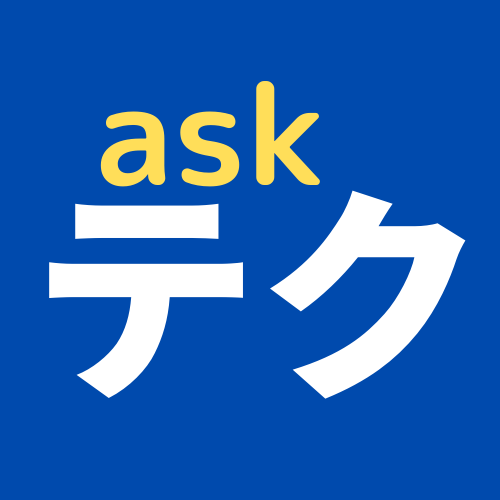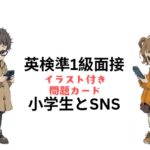目次
Agree Or Disagree: Children should start learning a second language as early as possible.
Points: Pronunciation / Cultural Awareness / Lack of Logical Thinking / Semilingual
物心ついてから、もしくは義務教育から英語を学びだした人は、「なんでうちの親は私が(僕が)小さい頃に英語を日常的に聞かせておいてくれなかったんだろう?」と考えたことがある人は少なくないでしょう。私もそのうちの一人です。英語や第二外国語をそのネイティブスピーカーの様な発音取得を考えると、出来るだけ早く学習し始めるのに越したことはないのでしょう。とは言え、いかなることにもProsとConsがつきものです。出来るだけ幼少期がら学習する利点は、発音などすぐ思いつきますが、欠点はどうでしょうか?これを機に調べて知識を広げましょう。
昨今、すべての事において学習が低年齢化してきています。親も子供にどういった教育を何歳から始めれば良いのか、特定の年齢時に何を学習すべきなのか分からない人が多いといいます。第二外国語の学習もしかり。早すぎる学習スタートは、日本語の上達に悪影響をあたえないのでしょうか?
Brilliant benefits of learning a second language as a child.
Pros and Cons of Bilingual Education in Early childhood
幼児期は「第二言語」を学ぶのに最適な時期であることが分かった
林修先生「幼児に英語教育は不要」 幼児期からの早期英語教育に賛否の声 – レタスクラブ
肯定派:子供は出来るだけ早く第二言語を学び始めるべき (語数 199語)
Agree Or Disagree: Children should start learning a second language as early as possible.
Points: Pronunciation / Cultural Awareness
Introduction
In my view, it’s highly beneficial for young children to begin learning a second language early on, as it not only enables them to cultivate a deep understanding of the culture but also allows them to sound like native speakers of those languages.
私の意見では、小さな子供が早い時期に第二言語を学び始めることは、非常に有益であると思います。なぜなら、その文化を深く理解できるようになるだけでなく、その言語のネイティブ並みの発音が出来るようになるからです。
【解説】
・少しカジュアルな表現かもしれませんが、as early as possible では、あまりにトピックと酷似してしまうので、準1級のエッセイとしては不適切かと思い使用しました。
・全く難しい表現ではありませんが、日本を先に考えてしまうと、children can cultivate a deep understanding…..となってしまい、すごくシンプルな文になってしまいます。エッセイでは、このenableやallowを上手に使いこなしましょう。
Discussion 1
In today’s globalised world, cultural awareness plays a pivotal role, and this awareness can be effortlessly nurtured through the acquisition of a second language during early childhood. People naturally become exposed to the customs and traditions of the respective countries while learning a second language. Young learners, especially, tend to relish and accept the cultural differences, fostering a sense of inclusivity as they mature.
こんにちのグローバル化された世界では、文化の気づきは重要な役割を担っています。そして、この気づきは、幼少期の第二言語取得を通し、努力することなしに育成されるのです。人は、第二言語を学ぶ中、その言語が話されている国の伝統や慣習に自然にさらされます。特に、子供の学習者は文化の違いを楽しみ享受する傾向にあり、これは大きくなるにつれ包括性の感覚を育成します。
【解説】
・develop も同義語です。
・immersedでも良いでしょう。言語学習に関して話すとき、名詞の immersion と併せて、よく出てくる単語です。
Discussion 2
The earlier children embark on their second language journey, the more skillful they become at mastering pronunciation. Younger children, particularly those under the age of 2, possess a remarkable ability to distinguish and articulate sounds that may not exist in their native tongue. For example, many adult Japanese learners often have trouble differentiating the sounds between ‘R’ and ‘L’ .
子供たちは第二言語の学習を始めるのが早ければ早い程、彼らの発音はもっと上達するでしょう。小さい子供は、特に2歳未満の子は、母国語にない音を識別し、はっきりと発音する驚くべき才能を持っています。例えば、多くの日本人の成人学習者にとって、RとLの発音を区別するのは困難なことです。
【解説】
・日本語で言語の旅と訳す必要はないですが、英語では、Language-learning journeyとかもよく使います。一種の比喩的表現です。それに合わせた動詞(embark) も用いています。
・他にも articulate は、I found myself unable to articulate my feelings. 「感情を明確に表現できない」という意味でもよく使われますので、覚えておきましょう。
Conclusion
In summary, introducing a second language to children during their formative years offers advantages in terms of both cultural awareness and pronunciation; thus, children should begin learning a second language at a younger age.
要約すると、子供の人格形成時期中に第二言語を導入することは、文化的気づきと発音の両方に関し、有利に働くでしょう。ですから、子供たちは小さいうちに第二言語を習い始めるべきです。
【解説】
・知らなければ、まどろっこしい表現になってしまいますから、覚えておくと便利です。
肯定派:全文(音声付き)
In my view, it’s highly beneficial for young children to begin learning a second language early on, as it not only enables them to cultivate a deep understanding cultural but also allows them to sound like native speakers of those languages.
In today’s globalised world, cultural awareness plays a pivotal role, and this awareness can be effortlessly nurtured through the acquisition of a second language during early childhood. People naturally become exposed to the customs and traditions of the respective countries while learning a second language. Young learners, especially, tend to relish and accept these cultural differences, fostering a sense of inclusivity as they mature.
The earlier children embark on their second language journey, the more adept they become at mastering pronunciation. Younger children, particularly those under the age of 2, possess a remarkable ability to distinguish and articulate sounds that may not exist in their native tongue. For example, many adult learners of Japanese often have trouble differentiating the sounds between ‘R’ and ‘L’ .
In summary, introducing a second language to children during their formative years offers advantages in terms of both cultural awareness and pronunciation; thus, children should begin learning a second language at a younger age.

反対派:子供は幼児期から第二言語を学び始めるべきでない(語数 209数)
Agree Or Disagree: Children should start learning a second language as early as possible.
Points: Lack of Logical Thinking / Semilingual
Introduction
Early childhood is a significantly important period for children to nurture various abilities and their native language skills. Therefore, I believe it is not necessary to begin learning a second language in early childhood.
幼少期は、子供が様々な能力や母国語の力を育てる非常に大切な時期です。ですから、その頃から第二言語を学び始める必要はないと考えます。
【解説】
・ここでは、最もポピュラーな important を選びましたが、pivotal, vital, crucial, critical などの同義語もしっかり覚えておきましょう。
Discussion 1
It is known that children also develop logical thinking skills in early childhood, and these skills should be prioritised for nurturing. The lack of logical thinking skills may cause various troubles for them as they mature, making it hard for them to navigate daily life. Therefore, it is better to spend more time playing games, solving puzzles, and engaging in other activities that allow them to develop these skills.
幼少期は、子供が論理的思考を育てる時期でもあり、これらの能力育成は優先されるべきです。論理的思考の欠落は、成長した時、様々な問題になりかねません。これは日常生活を送るにあたって不自由なことでしょう。ですから、論理的思考をのばすことが出来るアクティビティ、つまりゲームをしたりパズルを解いたりすることにより多くの時間を費やした方が良いでしょう。
【解説】
・日常生活を上手くおくるのが困難になるというのが直訳です。この段落では、難しい文法表現も単語も使っていません。準2級レベルの文法ですが、しっかりミスなしに使いこなせれば割と中身のある事も書けます。
Discussion 2
There is a risk of becoming semilingual if children start learning a second language early on. Since there are only 24 hours in a day for everyone, children learning a second language may run out of time to catch up with their native language. As a result, their native language skills may end up being limited compared to children of similar ages who are not learning a second language.
早くから子供が第二言語を学び始めると、セミリンガルになるリスクがあります。一日は24時間しかないので、外国語を勉強している子供は、母国語を学ぶ時間が無くなってしまうかもしれません。結果、外国語を学んでいない同じ年代の子供と比べると、母国語の能力が限られてしまうかもしれません。
【解説】
・セミリンガルとは、2つの言語の両方も完璧でない・中途半端であることを意味します。バイリンガルは、もちろん2つの言語を使いこなせることを意味しています。この段落も前段落同様、難しい表現は一切使っていません。特段、難しい文法表現を用いなくても120~150字くらいのエッセイは書けます。逆に日本語で文章作成を先にし、それを翻訳すると小難しい英語になってしまうのでは?と思います。
Conclusion
In conclusion, learning a second language in early childhood may potentially hinder the development of logical thinking as well as native language skills. Therefore, there is no need to rush to start learning a second language.
結論を言うと、幼少期に第二言語を学ぶことは母国語だけでなく論理的思考の発達の妨げにもなり得るでしょう。ですから、第二言語を勉強し始めることを急ぐ必要はないのです。
【解説】
・Hinderは見た事ない人もいるかもしれません。「hinder + 名詞」 もしくは、「hinder + 名詞+ ~ing」の形をとります。 妨げる/邪魔をするの意です。厳密には少し違いがあるのですが、まぁ prevent の同意語ですね。
反対派のエッセイは最後まで、簡単な表現で終わってしまいました。でも、準2くらいの文法で全く問題なく書けることが分かったと思います。英作文が苦手という人には朗報でしたね!
否定派:全文(音声付き)
Early childhood is a significantly important period for children to nurture various abilities and their native language skills. Therefore, I believe it is not necessary to begin learning a second language in early childhood.
It is known that children also develop logical thinking skills in early childhood, and these skills should be prioritised for nurturing. The lack of logical thinking skills may cause various troubles for them as they mature, making it hard for them to navigate daily life. Therefore, it is better to spend more time playing games, solving puzzles, and engaging in other activities that allow them to develop these skills.
There is a risk of becoming semilingual if children start learning a second language early on. Since there are only 24 hours in a day for everyone, children learning a second language may run out of time to catch up with their native language. As a result, their native language skills may end up being limited compared to children of similar ages who are not learning a second language.
In conclusion, learning a second language in early childhood may potentially hinder the development of logical thinking as well as native language skills. Therefore, there is no need to rush to start learning a second language.
こちらの記事もお薦めです。




